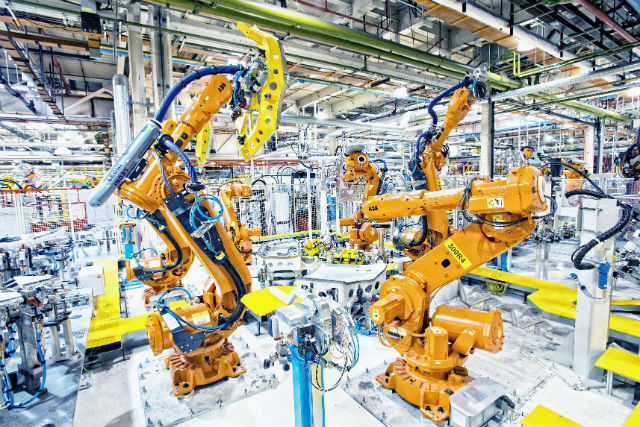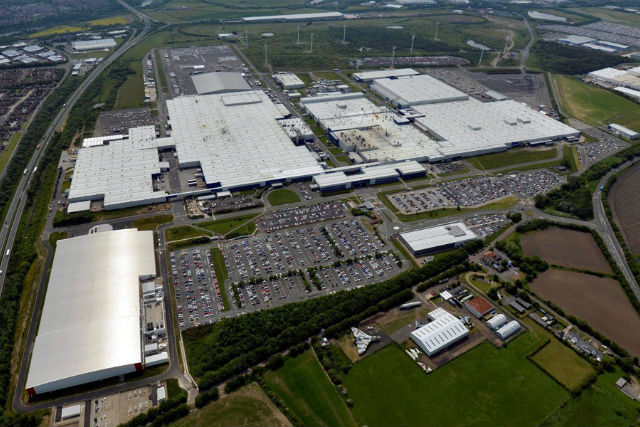As it stands, the British automotive industry is at its strongest point in a decade. Last year, a total of 1,587,677 vehicles rolled off UK production lines according to the SMMT, a 3.9 per cent rise over the previous year and the highest number in recent history.
Compare this against the lingering effects of the recession and the all-time British record of 1.92 million cars that was set all the way back in 1972, and the industry seems to be doing very well for itself indeed. However, the Brexit debate could be threatening to cast a shadow on the sector’s success.
The Brexit, an abbreviation of “British exit”, refers to the possibility of Britain’s withdrawal from the European Union, with a number of British political parties in favour of a referendum on EU membership.
Brexit supporters base their opinion on a variety of factors, ranging from the global competitiveness of British businesses to concerns about immigration. Britain has already opted out of the EU’s monetary union, rejecting the Euro in favour of pound sterling, along with the Schengen Area, meaning that it doesn’t share open borders with a number of other European states.
But would a full-blown Brexit be all that it’s cracked up to be? In terms of the effects it would have on motoring, all signs currently point to no, with the UK’s recent manufacturing successes being one of the biggest points.

Putting the brakes on manufacturing?
As it stands, the vast majority of car manufacturers based in the UK have stated that they’re in favour of the UK remaining within the EU. Stripped down to its basics, the EU still remains essentially a trading bloc, and being within it makes sense to manufacturers for both financial and regulatory reasons.
Paul Newton, director of industry and market intelligence for analysts IHS Automotive, says: “No manufacturing industry would be more affected by a vote to leave than automotive. Production is rising in the UK but I cannot over-emphasise how incredibly difficult it is for the industry to make decisions with the current questions over the referendum.
European Union states are currently the largest export market for vehicles built in Britain, and though there’s a lot of talk about emerging markets in China and Russia, these currently only account for a very small proportion of the cars exported from UK shores.
Of all the vehicles manufactured in Britain last year, 77.3 per cent of them were sold to other EU member states. If the UK was to leave the EU following a referendum, the price of British-made cars on the other side of the channel would increase.
If a Brexit did take place, the UK would forfeit the free trade agreements it currently enjoys as an EU member, and other European Union states would also be able to charge much higher import tariffs on UK-made goods.

Likewise, it would become a lot more expensive to manufacture vehicles in this country given that so many of the components used are imported from EU states, with essential parts coming from France, Germany, Spain and other countries like Turkey and Slovakia. With increased production costs will also come higher prices for the consumer, even in the domestic market, which will result in higher list prices and higher costs to finance and lease cars as well.
With rising costs on either side of the EU border, it would stand to reason that many of the overseas car manufacturers which have set up shop in Britain would start to question whether it’s worth continuing to have their car manufactured here.
Although Brexit proponents make the case that leaving the European Union would result in a boost for UK businesses, given that so many of the UK’s automotive jobs come from larger international companies could throw a spanner in the works. Already, firms like Hyundai and Ford have indicated that they would consider scaling back in the UK in the event of a Brexit.
Threat to British employment
The SMMT has argued that Europe is critical to the success of Britain’s automotive industry given that the sector currently employs more than 700,000 people and accounts for three per cent of the country’s GDP. Although some manufacturers like Toyota have said that they would plan to stay in Britain if the country left the EU, it could still deal a crippling blow to the economy and to employment figures.
Given that the UK’s car manufacturing sector is worth £69.5 billion a year to the economy, anything likely to knock it off course must be considered at great length. Like Hyundai and Ford, Nissan boss Carlos Ghosn has claimed that in the event of an exit from the EU, he would have to look at the cost-effectiveness of Nissan’s Sunderland plant, the site of a £100m investment from the UK government, very carefully.

Further down the chain, dealer groups are likely to be feeling the pressure of an impending EU referendum. Responsible for a significant number of the leasing and finance deals that buyers fund their cars with, when dealers get nervous it sends out a ripple effect that can be felt throughout the entire industry.
Dealers need stability in order to operate successfully, and given the current uncertainty over the outcome of a possible Brexit referendum, it’s not unthinkable to imagine that prices will already start to go up in anticipation.
Outside of a strictly financial impact, Britain’s exit from the EU would also have an impact on regulations. As a member of the European Union, the UK currently has a say in the standards that cars must be tested to, and if it were to leave, it would lose considerable clout in regulation and law making.
Though it’s unlikely that a car made by a British manufacturer operating outside of the EU would fail any European standards on safety, it could potentially be that the standards set by the EU aren’t high enough. In the past, the UK has been a strong voice calling for the bar to be set higher for safety and quality standards.
Worries over emissions and safety standards
Tailpipe emissions are also seen as a key issue which could come under threat with the looming possibility of the Brexit. Earlier this year, a group of academics which includes past heads of the RSPB, National Trust and Environment Agency penned a letter to environment secretary Liz Truss to stress the importance of the EU in maintaining emissions standards.

The group wrote: “Being part of the union has enabled us to coordinate action and agree policies that have improved our quality of life, including the air we breathe, the seas we fish in, and have protected the wildlife which crosses national boundaries.
“Higher European manufacturing standards for cars, lights and household appliances have lowered consumer energy costs, and stimulated business innovation.”
The Guardian reported in January that London had already breached its annual pollution limits just over one week into 2016, with the limit for toxic nitrogen dioxide reached only eight days after the year began. Under EU rules, sites are only allowed to breach hourly limits of 200 micrograms of NO2 per cubic metre of air 18 times a year.
Although pollution in London particularly is clearly a problem with or without EU intervention, it’s currently the EU which is responsible for monitoring and implementing pollution limits. Whether Britain would tear up its existing EU-codified environmental commitments in the event of an exit is unclear, but it’s still seen as a clear danger.
Furthermore, many key campaigners in favour of the Brexit have previously argued against environmental regulations and targets, with former chancellor Nigel Lawson a leading voice of climate scepticism, while UKIP’s Nigel Farage has frequently rallied against clean energy.

Travel and tourism
Another key but oft overlooked area which could be affected is the travel and tourism industries, with leading travel bosses claiming that a Brexit could have a detrimental and costly effect on holidaymakers.
Writing in the Sunday Times, easyJet chief Dame Carolyn McCall warned: “EU has brought huge benefits for UK travellers and businesses. Staying in the EU will ensure that they, and all of us, continue to receive them. How much you pay for your holiday really does depend on how much influence Britain has in Europe.”
Brexit campaigners denounced the claims as negative campaigning tactics based on “fear and falsehoods”, but it’s likely that costs and border complications for travellers, including holidaymakers who choose to drive to Europe rather than fly, could rise.
Peter Long, former boss of the Tui travel group that owns Thomas and First Choice, even went so far as to insist that EU membership would be essential to “protect the security of our holidaymakers”. Mr Long, who was in charge of Tui when 33 of its customers were massacred by a gunman in Tunisia last year, said that collaboration between European governments had been crucial to ensuring the safety of the others.
So should the UK leave the European Union? Well, that’s between you and the ballot box, but this far only one thing’s for certain. Whether you’re in support of a Brexit or not, there’s clearly a lot more at stake for motorists than might first appear on the surface.



